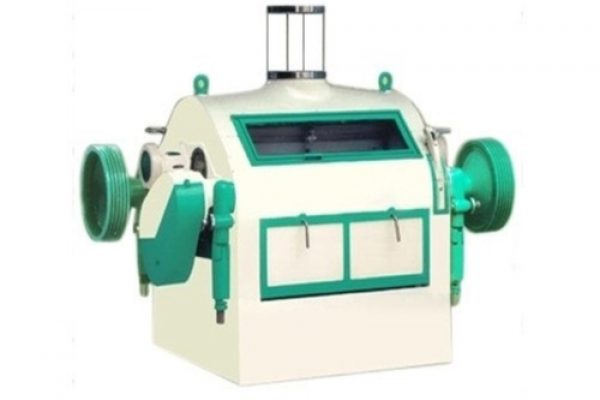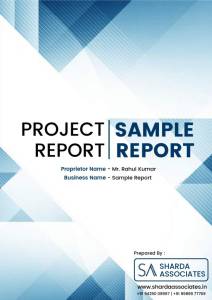Project Report For Roller flour Mill
Introduction
Project Report For Roller flour Mill is as follows.
A roller flour mill is a type of industrial facility dedicated to the grinding of grains into flour. It processes wheat or other grains and transforms them into finely ground flour using a succession of rollers and other gear and equipment. Roller flour mills are extensively utilised in the food processing sector and play an important role in satisfying demand for a variety of flour products.
The washing and conditioning of the grains is usually the first step in the process of a roller flour mill. To eliminate contaminants such as dirt, stones, and foreign particles, raw grains, often wheat, are thoroughly cleaned. Conditioning is the process of regulating moisture levels in order to obtain ideal grain uniformity.
The grains are put into the roller mill after they have been washed and conditioned. A roller mill is made up of a series of parallel, revolving metal rollers that crush and grind grains. The rollers provide pressure to the grains, eventually shrinking them and transforming them to flour.
The number and configuration of the rollers might vary based on the desired fineness of the flour and the milling technique used. The grain particles are milled by passing them through a sequence of break rollers and reduction rolls. Break rolls and separate the endosperm (the starchy component of the grain) from the bran and germ. The endosperm is further ground by the reduction rollers to generate finer flour. Separated bran and germ are frequently utilised in various applications like animal feed.
The flour is sifted after it has been ground to eliminate any leftover impurities or bigger particles. Purifiers are then used to attain the correct flour consistency and remove any leftover bran or germ. Roller flour mills are outfitted with a variety of gear and equipment, including as elevators, conveyors, sifters, purifiers, and packaging systems, to aid in the milling process and assure effective output.
Roller flour mill flour may be used for a variety of applications, including bread making, pastry creation, pasta manufacturing, and a variety of other culinary products. The quality of the flour is determined by elements such as grain type and quality, milling procedures, and mill operator competence.

Benefits Of Roller Flour Mill
Efficient Grain Processing: Roller flour mills are particularly effective in processing grains such as wheat into flour. Multiple rollers and innovative milling procedures produce a constant and uniform grind, resulting in high-quality flour output.
Enhanced Flour Quality: Roller milling helps produce finer particle size distribution, which adds to enhanced flour quality. The regulated grinding process used in roller mills preserves the nutritious value of grains while also improving the baking qualities of the flour.
Increased Production Capacity: Roller flour mills are built for large-scale manufacturing, allowing for larger capacity than traditional stone mills. This allows mill operators to satisfy the increased demand for flour products more effectively.
Versatility: Roller flour mills are versatile because they can process a wide range of grains, including wheat, corn, rice and others. This adaptability enables mill operators to create a diversified range of flours for various culinary purposes, responding to a wide range of consumer preferences.
Cost-effectiveness: Roller milling is a cost-effective way of producing flour. In comparison to manual or traditional milling processes, it provides higher productivity, lowers labour needs, and decreases grain waste. This can result in cost savings for mill operators and possibly cheaper costs for customers.
Market Potential Of Roller Flour Mill
The size of the worldwide commercial Roller flour mill market is expected to increase at a CAGR of 4.7% between 2023 and 2033. Market value is predicted to rise from $1,682.2 million in 2023 to $2,662.8 million by 2033.
Roller flour mills are predicted to have a substantial market potential in 2023. Global demand for flour products is increasing due to reasons such as population increase, urbanisation, and changing dietary habits. Roller flour mills are critical in addressing this demand because they effectively grind grains into high-quality flour.
In emerging nations, where population growth and urbanisation are both on the rise, there is a growing demand for processed foods, especially flour-based goods like bread, pastries, and pasta.
Roller flour mills offer the infrastructure and technology required to manufacture vast quantities of flour in order to fulfil this demand. Furthermore, when disposable incomes rise in these locations, there is a move towards convenience meals, which increases demand for flour-based items.
Project Report Sample On Roller Flour Mill
Need Help?
Create 100% Bankable Project Report

